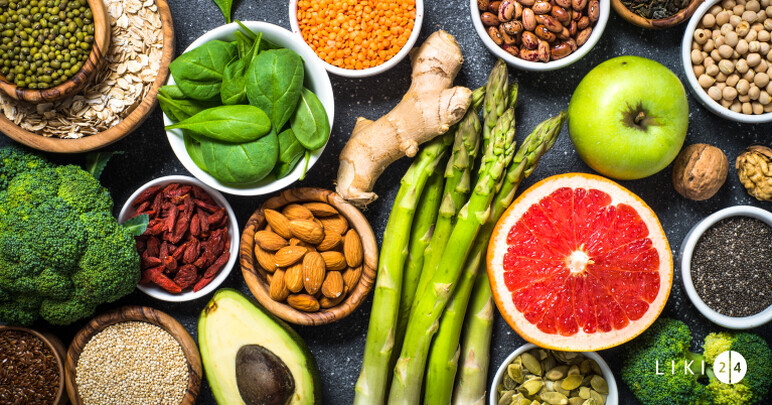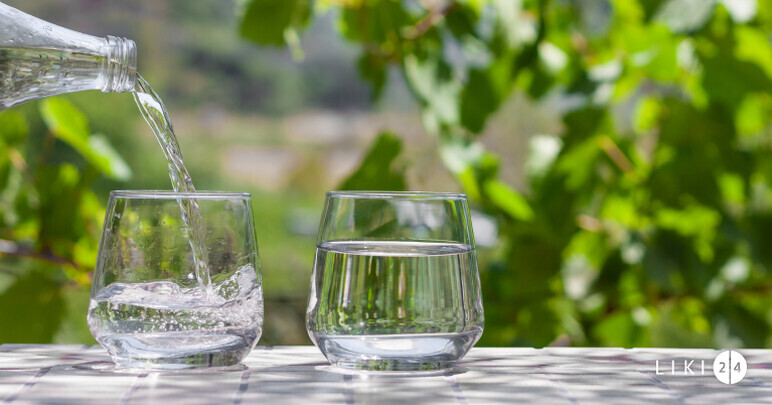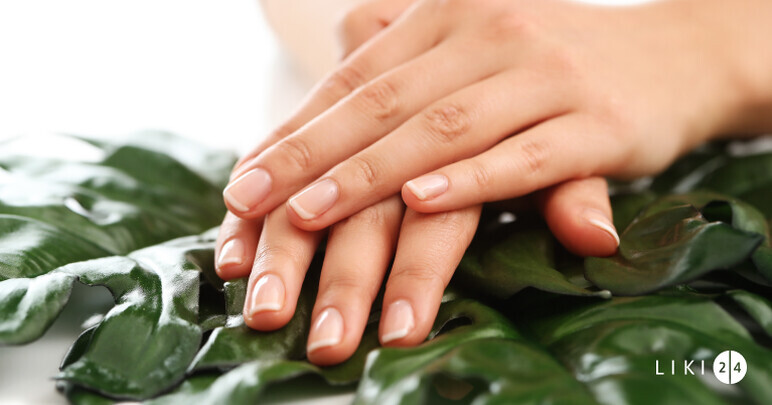Tè al finocchio, 20 bustine, Fares
Finocchio


Non disponibile

Come curare il raffreddore nelle sue prime fasi: cosa prendere?


Segreti di una protezione solare affidabile: come mantenere la giovinezza della pelle


Le basi di una sana digestione: cosa aiuta a mantenere la salute dello stomaco


Proteine per la crescita muscolare: alimenti ad alto contenuto proteico, alimentazione corretta

Descrizione Finocchio
Le informazioni nella sezione Domande e Risposte sono state create dal team di Liki24.co.uk e si basano sulle istruzioni ufficiali del produttore.
Il finocchio è una pianta i cui semi e bulbi sono utilizzati sia in cucina che a scopo terapeutico per trattare o alleviare molti disturbi, soprattutto di natura gastrica.
Cosa contiene il finocchio?
Un bulbo di finocchio contiene: grassi, proteine, carboidrati, fibre alimentari, ma anche: potassio, sodio, vitamina A, vitamina C, vitamina B6, calcio, magnesio, fosforo, zinco, selenio, manganese, niacina, oltre a betacarotene e zeaxantina.
Quali sono i benefici del trattamento con il finocchio?
Il finocchio viene utilizzato per alleviare i disturbi digestivi come gonfiore, flatulenza, diarrea o costipazione, nonché per alleviare i disturbi oculari e la tosse.
Il finocchio può rafforzare il sistema osseo
Grazie all'elevato contenuto di calcio, il finocchio aiuta a mantenere le ossa sane aumentandone la densità. Anche il fosforo e il magnesio contenuti nel finocchio sono benefici per il sistema osseo.
Aiuta a regolare la pressione sanguigna
Grazie all'elevato contenuto di potassio e al basso contenuto di sodio, il finocchio può contribuire a ridurre la pressione sanguigna.
Stimola la digestione e regola l'acidità
Il finocchio contiene fibre che stimolano il transito intestinale, combattono la stitichezza e alleviano i sintomi della sindrome dell'intestino irritabile, equilibrano il pH dello stomaco, riducono l'iperacidità.
Il finocchio aiuta a perdere peso perché è ricco di fibre alimentari, che mantengono il senso di sazietà e riducono l'appetito.
Può migliorare la memoria
La colina contenuta nel finocchio è necessaria per un sonno ristoratore, per migliorare la memoria e la capacità di apprendimento e per la funzione muscolare.
Aumenta il metabolismo
Il finocchio è una ricca fonte di vitamina B6, che favorisce il metabolismo aiutando a convertire carboidrati e proteine in glucosio e aminoacidi.
Benefico per la salute degli occhi
Il deterioramento della vista con l'età è dovuto alla degenerazione maculare. Gli antiossidanti presenti nel finocchio riducono l'infiammazione alla base di questa degenerazione. Il finocchio contiene antiossidanti importanti per la vista: zeaxantina, beta-carotene e flavonoidi.
Potrebbe regolare l'attività della tiroide
Un consumo elevato di finocchio a lungo termine ha ridotto i livelli sierici di ormoni tiroidei (T3 e T4).
Può alleviare i dolori mestruali
Il finocchio aiuta a prevenire le contrazioni dell'utero, che causano i dolori mestruali.
Stimola la lattazione
Il finocchio può stimolare la produzione di latte nelle donne che allattano, ma è meglio chiedere consiglio al medico.
Quali sono gli integratori alimentari a base di finocchio?
Il finocchio si può trovare anche sotto forma di integratori alimentari, come capsule, olio o tintura, e si può anche preparare una tisana al finocchio.
Per preparare la tisana al finocchio, mettere 1 cucchiaio di pianta (semi essiccati) in 250 ml di acqua bollente, lasciare in infusione per 15 minuti. Filtrate il tè e bevetelo a stomaco vuoto. Bere 3 tazze al giorno, mezz'ora prima dei pasti.
Il tè al finocchio favorisce la digestione, supporta il processo di dimagrimento e migliora la produzione di latte materno. Contiene potenti antiossidanti e sostanze nutritive: vitamine A, C, D, complesso B e altri composti bioattivi benefici e aiuta l'organismo con i benefici sopra menzionati.
Come scegliere il finocchio fresco per renderlo gustoso?
Il finocchio ha una consistenza croccante e un sapore leggermente dolce e può essere consumato sia crudo che cotto, ma per essere gustoso deve essere scelto correttamente. Quando acquistate il finocchio, evitate i bulbi macchiati e quelli con una consistenza leggermente molle. Il bulbo deve essere sodo, senza macchie, e i gambi devono essere verdi, non appassiti. Se conservati in frigorifero, i finocchi si mantengono freschi per circa 4 giorni. È bene sapere che il finocchio ha un sapore intenso e particolare, quindi potrebbe non essere apprezzato da tutti. Per questo motivo, se non avete mai mangiato il finocchio prima d'ora, è bene prendere un solo bulbo per vedere se riuscite ad abituarvi al suo sapore e al suo odore.
Come preparare il finocchio?
Il finocchio può essere consumato crudo, dopo averlo sbucciato e tagliato a porzioni, incorporato nelle insalate o mangiato con creme di verdure o salse fredde come l'hummus o il guacamole.
Se volete cucinarlo, rimuovete i gambi con un coltello, quindi tagliate il bulbo in verticale. In seguito, potete tagliare il bulbo a vostro piacimento. Il finocchio può essere utilizzato in zuppe, minestre, ma anche saltato con altre verdure in salse e stufati. I bulbi di finocchio possono essere cotti al forno e serviti come antipasto o guarnizione. È vero che il finocchio crudo è il più nutriente, ma quello cotto conserva alcune delle sue proprietà.
Quali sono le controindicazioni del finocchio?
Sebbene il finocchio sia una verdura sana che non causa problemi quando viene mangiata, può causare alcuni problemi con alcune malattie. Le persone allergiche ad alcune spezie possono essere allergiche anche al finocchio.
Poiché contiene un'alta concentrazione di potassio, il finocchio dovrebbe essere evitato da chi soffre di malattie renali. I cardiopatici che assumono beta-bloccanti possono avere alti livelli di potassio nel sangue, per cui dovrebbero evitare anche il finocchio o chiedere consiglio al medico se desiderano includerlo nella loro dieta.
Quali ricette a base di finocchio possiamo preparare?
Come ho detto, il finocchio ha un sapore forte che potrebbe non piacere a tutti; ma se avete deciso di provarlo, ecco alcune ricette a base di finocchio.
Finocchi gratinati
Se vi piacciono i broccoli, le patate o le zucchine gratinate, potete anche provare un gratin di finocchi.
Ingrediente:
4 grossi bulbi di finocchio, un pizzico di noce moscata, 1 spicchio d'aglio, 200 ml di panna pesante (25-35%), 50 g di parmigiano o pecorino, sale e pepe a piacere.
Preparare:
Riscaldare il forno a 180 gradi Celsius.
Mettere a bollire una pentola con acqua e sale. Tritare le cime dei finocchi e scartarle, così come circa mezzo centimetro dalla base. Quindi, lavare bene il bulbo rimanente, tagliarlo a fette e metterlo nella pentola d'acqua bollente. Far bollire per 5-6 minuti, quindi scolare bene. Disporre le fette cotte in una pirofila, salare, pepare e spolverare con la noce moscata in polvere. Mescolare l'aglio schiacciato con la panna e versare sui finocchi. Grattugiare il parmigiano, quindi infornare la pirofila per 20 minuti, finché la crosta non diventa dorata.
Penne con finocchi e salsiccia
Per un pranzo gustoso nel fine settimana, suggeriamo una porzione di pasta con finocchi e salsiccia.
Ingrediente:
1 bulbo di finocchio, tagliato a fettine sottili, 1 rametto di porro, tagliato a fettine sottili, 250 g di broccoli tritati
300 g di pasta corta, 1 cucchiaio di olio d'oliva, 6 salsicce fresche (possono essere anche salsicce vegetali, a seconda delle preferenze), 2 spicchi d'aglio tritati, 2 cucchiai di semi di finocchio, 1 cucchiaio di concentrato di pomodoro
2 carote grattugiate, pomodori in scatola (400 g)
Preparare:
Portare a ebollizione una grande pentola d'acqua salata, ridurre la fiamma a livello medio, quindi aggiungere i porri, il finocchio a fette e i broccoli e cuocere per 3 minuti fino a quando le verdure sono tenere. Rimuovere con un cucchiaio forato, ma non buttare l'acqua. Nella stessa pentola d'acqua bollente mettere la pasta e cuocerla per qualche minuto finché non sarà tenera, ma non completamente morbida, ma al dente.
Mettere una padella a fuoco alto, aggiungere l'olio d'oliva e la carne tolta dalla salsiccia e fatta a pezzetti nella padella con un cucchiaio di legno. Far rosolare la carne per 5 minuti, quindi aggiungere l'aglio, i semi di finocchio, il concentrato di pomodoro e mescolare il tutto per 30 secondi. Ridurre il fuoco a medio, aggiungere le verdure cotte e la carota grattugiata e mescolare delicatamente per altri 5 minuti. Infine, aggiungere i pomodori della lattina e, dopo aver mescolato il tutto, lasciare il sugo di carne e verdure a fuoco basso per altri 10 minuti.
Dopo la cottura della pasta, scolatela, tenendo da parte una tazza di acqua calda, e mettetela nella padella sopra il sugo, aggiungendo un po' di acqua dalla tazza se il sugo sembra troppo denso. Dopo aver mescolato bene il tutto per due minuti, spegnete il fuoco e potete servire il piatto.
Qual è la differenza tra anice, cumino e finocchio?
Il tè all'anice è consigliato per ridurre la nausea, ridurre gli spasmi che si verificano nel tratto gastrointestinale, migliorare la digestione e aumentare la secrezione di latte nelle madri che allattano.
L'uso del tè al cumino per i bambini è noto per essere un buon trattamento per le coliche. Il tè al cumino è consigliato anche alle madri durante l'allattamento, poiché stimola la secrezione del latte.
Il finocchio combina fondamentalmente i benefici dell'anice e del cumino.
Per un effetto completo si consiglia di consumare il tè al cumino in combinazione con altre erbe, come ad esempio: tè al cumino e anice o tè al cumino, finocchio e anice.
Caratteristiche
| Categoria | Vitamine e integratori, Digestione sana, Enzimi digestivi, Bellezza e сura, Madre e figlio, Salute del bambino, Dieta e nutrizione, Cibo salutare, Semi e Frutta Secca, Seme, Oli e Burri, Oli, Bevande, Tè, Aromaterapia, Oli essenziali, Sali reidratanti, Tè per bambini, Polveri e polveri, Sali per la reidratazione orale per bambini, Articoli per la casa |
| Brand | DmBio, Dvr Pharm, Fares, Herbal Sana, Hipp, Hofigal, Holle Baby, Humana, Justin Pharma, Larix, Mayam, Secom, Sonnentor |
| Tipo di prodotto | Buste, Capsule, Olio, Polvere |
Recensioni
La valutazione media è %s basata su %s recensioni

Semi di finocchio, 100 g, Herbal Sana
Consegna arrivata in tempo. Molto contenti. Prodotto autentico.

Finocchio 450mg Solaray, 100 capsule, Secom
Ottimo sostituto naturale al medicinale allopatico per stitichezza e/o meteorismo.

Semi di finocchio, 100 g, Herbal Sana
Consegna arrivata in tempo. Molto contenti. Prodotto autentico.

Finocchio 450mg Solaray, 100 capsule, Secom
Ottimo sostituto naturale al medicinale allopatico per stitichezza e/o meteorismo.


































